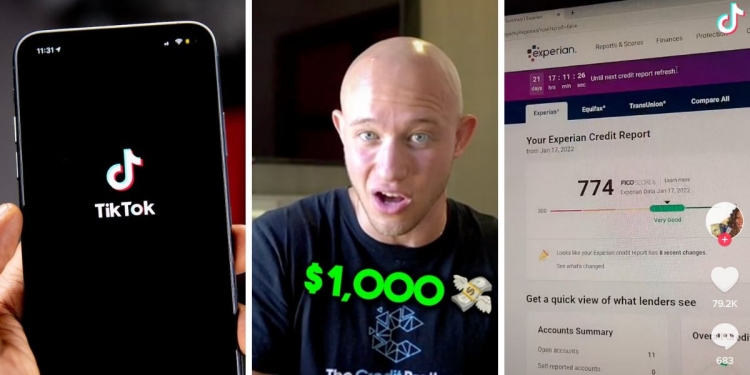There are all types of content and advice videos on TikTok, including financial advice—known on the platform as FinTok. While it’s reported that younger audiences like Gen Z use TikTok as a source for financial information, tips, and advice, lawyers have reported that it could result in legal trouble instead.
“There are plenty of people who are going to teach you things that they don’t fully understand… I see a lot of clients that will bring me or send me links… and it really is just terrible advice from someone who might have known a little bit of information—just enough to be dangerous is how I refer to it,” said Michelle Creeden who works for the National Legal Center.
David A. Gelinas, who also works with Creeden, said that “FinTokers” tend to give a lot of general information. However, the content makers don’t usually consider the level of risk for the viewer or how dire their financial situation may be, and they could also skip some important specifics. Both lawyers have helped clients who followed the wrong financial advice from TikTok.
@thecreditbrothers The Easiest Way To Pay Off Your Credit Card Debt: The Debt Snowball Method
♬ original sound – The Credit Brothers
One of Creeden’s clients saw TikToks about the snowball debt repayment method, as shown above. Technically, the creator has not said anything wrong. It’s a popular debt repayment strategy that suggests paying off the cards with the lowest balances first to keep yourself motivated. However, they fail to mention that you still need to continue paying all your other debts too.
“If you’re following a piece of information or advice without really understanding the whole scheme, it can really cause problems. So I had [a client] that decided to follow the advice of paying the smallest balance first. And so she stopped paying her taxes and her student loans,” said Creeden.
But it’s not just known financial strategies that TikTokers hype up. TikTokers will also post providing advice that veers into legal territory—like this one that offers legal advice in all states, despite states having different laws.
The creator suggests using the “statute of limitations” defense (referring to the time period a company has to take legal action against you) if a collections agency sues you. However, in reality, that is not always that simple.
“When people who are not attorneys are doing it in all the states, they are more likely to give the wrong information,” said Creeden.
Still, this doesn’t necessarily mean that you shouldn’t listen to every FinTok advice. Creeden acknowledges that they enjoy using TikTok and finds some FinTokers incredibly positive and helpful. They continued saying that before financial influencers, money advice wasn’t always accessible.
“My generation didn’t know much about credit or debt or… how to invest… You know, those aren’t things that we discussed at all in school,” said Creeden.
It’s important to remember that what works for others might not apply in your situation—especially legal advice from other countries. If you’re in a crisis, it’s best to reach out to a professional for help—and not depend too much on TikTok for something serious like medial or financial help.
It was reported that nearly half of Gen Z would rather use TikTok than Google to search for information—which is frightening especially if they’re not checking with other sources. But I understand where they’re coming from, as I also often use TikTok’s search bar for advice on certain things like travel tips or recipes. TikTok videos usually give a more comprehensible way of teaching you things than an article found on Google.
[ SOURCE, IMAGE SOURCE ]








